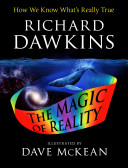Utnapashtim Origin of the Story of Noah's Ark
The Epic of Gilgamesh is one of the oldest stories ever written. Older than the legends of the Greeks or the Jews, it is the ancient heroic myth of the Sumerian civilization, which flourished in Mesopotamia (now Iraq) between 5,000 and 6,000 years ago. Gilgamesh was the great hero king of Sumerian myth - a bit like King Arthur in British legends, in that nobody knows whether he actually existed, but lots of stories were told about him. Like the Greek hero Odysseus (Ulysses) and the Arabian hero Sinbad the Sailor, Gilgamesh went on epic travels, and he met many strange things and people on his journeys. One of them was an old man (a very, very old man, centuries old) called Utnapashtim, who told Gilgamesh a strange story about himself Well, it seemed Strange to Gilgamesh, but it may not seem so strange to you because you have probably heard a similar story... about another old man with a different name.
Utnapashtim told Gilgamesh of an occasion, many centuries earlier, when the gods were angry with humankind because we made so much noise they couldn't sleep.
The chief god, Enlil, suggested that they should send a great flood to destroy everybody, so the gods could get a good night's rest. But the water god, Ea, decided to warn Utnapashtim. Ea told Utnapashtim to tear down his house and build a boat.
It would have to be a very big boat, because Utnapashtim was to take into it 'the seed of all living creatures.'
Utnapashtim built the boat just in time, before it rained for six days and six nights without stopping. The flood that followed drowned everybody and everything that was not safely inside the boat. On the seventh day the wind dropped and the waters grew calm and flat.
Utnapashtim opened a hatch in the tightly sealed 3at and released a dove. The dove flew away, looking for land. but failed to find any and returned. Then Utnapashtim released a swallow, but the same thing happened.
Finally Utnapashtim released a raven. The raven didn't come back which suggested to Utnapashtim that then was dry land somewhere and the raven had found it.
Eventually the boat came to rest on a mountaintop poking out of the water. Another god, Ishtar, created the first rainbow, as a token of the gods' promise to send no more terrible floods. So that is how the rainbow came into being, according to the ancient legend of the Sumerians.
Notes:
The Sumerian legend is clearly where the Old Testament gets its version of the story.
Folksonomies: scripture sumerian legends
Taxonomies:
/science/weather/meteorological disaster/flood (0.518526)
/art and entertainment/books and literature/mythology (0.378232)
/pets/birds (0.301429)
Keywords:
Utnapashtim (0.979041 (negative:-0.466400)), Gilgamesh (0.932737 (positive:0.046716)), ancient heroic myth (0.919820 (neutral:0.000000)), Greek hero Odysseus (0.910403 (positive:0.360233)), great hero king (0.909630 (positive:0.301780)), old man (0.808345 (neutral:0.000000)), Sumerian civilization (0.724935 (neutral:0.000000)), Sumerian myth (0.723896 (positive:0.301780)), strange things (0.693670 (neutral:0.000000)), oldest stories (0.683832 (positive:0.339063)), strange story (0.681203 (neutral:0.000000)), British legends (0.674342 (neutral:0.000000)), Arabian hero (0.670784 (positive:0.259430)), King Arthur (0.667942 (neutral:0.000000)), epic travels (0.661702 (neutral:0.000000)), Sumerian legend (0.659137 (positive:0.255210)), good night (0.654359 (neutral:0.000000)), similar story (0.653702 (neutral:0.000000)), boat (0.652652 (negative:-0.523360)), terrible floods (0.650845 (negative:-0.378607)), great flood (0.644551 (negative:-0.250448)), happened. (0.642453 (negative:-0.511669)), big boat (0.642016 (neutral:0.000000)), chief god (0.639847 (neutral:0.000000)), water god (0.634051 (neutral:0.000000)), dry land (0.625815 (negative:-0.339049)), Old Testament (0.625494 (positive:0.255210)), ancient legend (0.619131 (positive:0.255210)), gods (0.571286 (negative:-0.606839)), raven (0.536176 (negative:-0.339049))
Entities:
Gilgamesh:Person (0.807181 (positive:0.109951)), Utnapashtim:Person (0.789544 (negative:-0.466400)), Ea:Person (0.335328 (negative:-0.402805)), Old Testament:FieldTerminology (0.330558 (positive:0.255210)), King Arthur:Person (0.316278 (negative:-0.346623)), Mesopotamia:Country (0.276330 (neutral:0.000000)), Iraq:Country (0.272272 (negative:-0.268731)), 6,000 years:Quantity (0.272272 (neutral:0.000000)), six days:Quantity (0.272272 (neutral:0.000000))
Concepts:
Mesopotamia (0.978618): website | dbpedia | freebase
Sumer (0.966378): dbpedia | freebase | yago
Fertile Crescent (0.897326): dbpedia | freebase | yago
Uruk (0.710047): geo | dbpedia | freebase | yago | geonames
Ishtar (0.598444): dbpedia | freebase | yago
Old Testament (0.597155): dbpedia | freebase | opencyc | yago
Epic of Gilgamesh (0.584248): dbpedia | freebase | yago
Hero (0.567403): dbpedia | freebase





